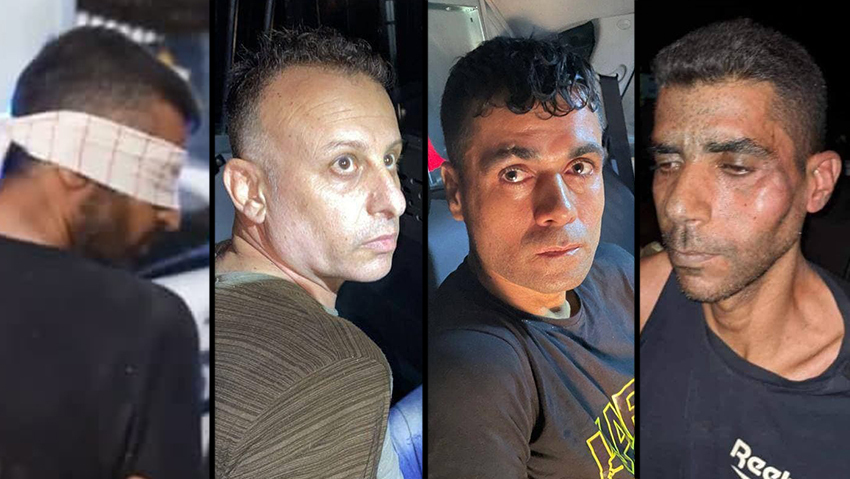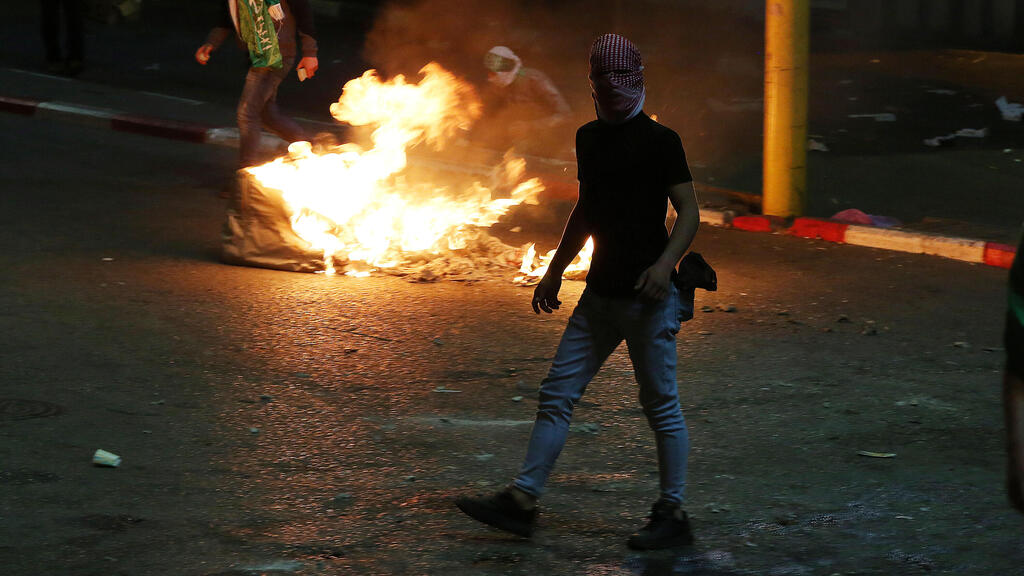Getting your Trinity Audio player ready...
The relatively quick arrest of four of the six Palestinian prisoners who made a dramatic escape from Gilboa Prison earlier this week indicates their plans were not as sophisticated as security officials initially estimated.
They also probably did not receive significant assistance from accomplices outside of prison.
4 View gallery


Israeli police capture notorious terror commander Zakaria Zubeidi who escaped on Monday
(Photo: AFP)
The fugitives' plan was probably based on the assumption that they would find short-term shelter in Arab communities near Gilboa in northern Israel.
They likely hoped to hide there for a few days before contacting their friends and relatives in the West Bank in order to comfortably flee to the Palestinian Authority and find a supply of food and weapons.
Their plan was unsuccessful for various reasons, with the main being the reluctance of the Arab sector in the north to volunteer as their escape accomplices.
The rest of the details will probably become clear later, but there is no doubt that technology also played an important role in locating and apprehending the prisoners.
The captured terrorists did not resist the arrest for one simple reason - they did not have weapons, so they could not put up a fight against Israeli security forces. From the photos it can be seen that police teams did not wear uniforms but assimilated into the area and might even have been waiting for the fugitives not far from where they were eventually caught.
Now, it is important to keep the foot on the gas since the remaining two fugitives who are still at large could be dangerous, if they were to team up with accomplices or someone who might provide them with weapons.
The riots in the West Bank overnight following the capture of the four prisoners may also be exacerbated by the ease with which they were captured.
4 View gallery


Israeli police capture notorious terror commander Zakaria Zubeidi who escaped on Monday
(Photo: AFP)
From Gaza there has already been a response when the Islamic Jihad (to which all but one escaped prisoners belong) fired a rocket into Israeli territory late Friday following the news of the capture of the first two escapees. The IDF responded with some airstrikes on the Strip and it is safe to assume if the remaining two prisoners are caught alive, the tensions will subside.
It is interesting what will happen to relations between the Palestinians in the West Bank and the Arab sector in Israel following this incident. It is likely that even within the Arab sector there are those who are dissatisfied with the meager assistance the fugitives received from the community.
Evidence of this can perhaps be seen in the overnight shooting directed at the house of Superintendent Jamal Khachrush, who is the head of the police department that deals with crime in the Arab sector, and is naturally a target for those who oppose the State of Israel.
The bottom line is that it will be impossible to predict what will happen in the next 24 hours. In any case, the success of the operation to capture the fugitives must not overshadow the need for major reform in the Israel Prison Service.



